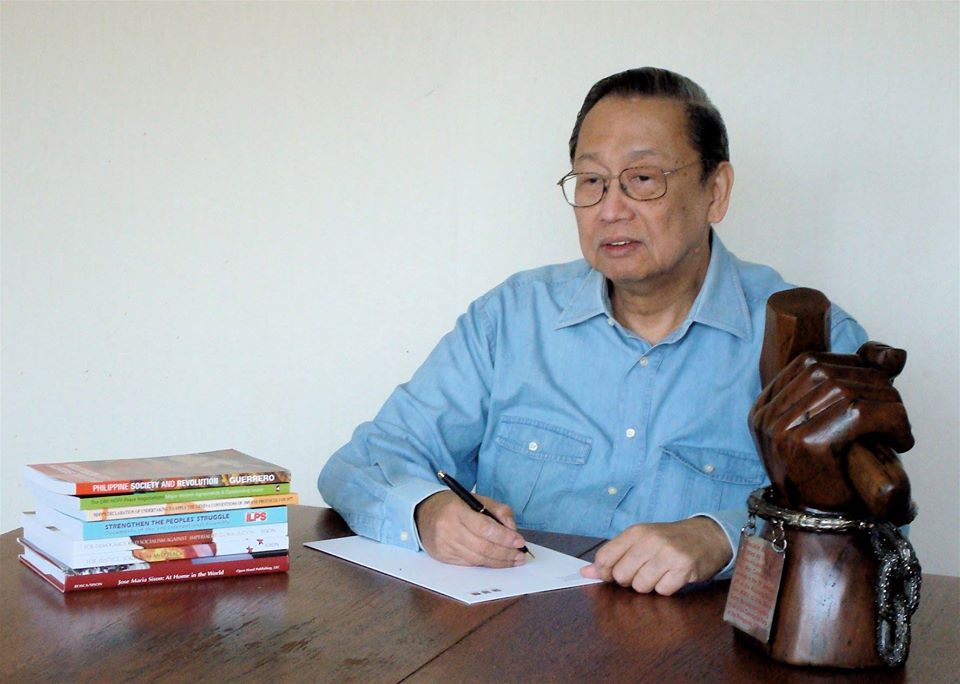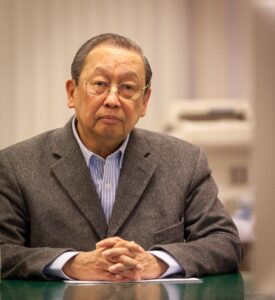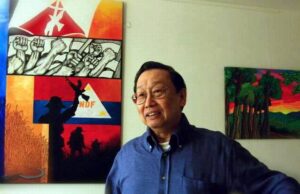Remarks by Jose Maria Sison, Author On the Launch of On People’s War &Imperialism in Turmoil, Socialism in Prospect

Dear Friends,
I wish to thank the International Office of the National Democratic Front of the Philippines and the International Network for Philippine Studies for sponsoring and organizing this cyber launch of the books, On People’s War and Imperialism in Turmoil, Socialism in Prospect.
I also thank the book reviewers Jacob Bodden and Dr. Fred Engst and the moderator, Ms Nikky Guzman for giving us an overview of the two books and for encouraging the public to acquire copies of the books.
You may use Google Search to find out which bookstores and publishing outlets are most convenient for you to order the books. These include the Popular Bookstore in Manila and the Bol.com in The Netherlands and the Amazon, Barnes & Noble, Apple, Scribd, Vivlio and Kobo-Rakuten.
I take this opportunity to relate the two books inasmuch as they are being presented to you at the same time. On People’s War gives you insights on how the people’s democratic revolution through protracted people’s war has persevered and grown in strength self-reliantly in the Philippines. And Imperialism in Turmoil, Socialism in Prospect provides the insights why in the current and forthcoming decades the Philippine revolution would benefit from more favorable conditions in the national and global contexts.
The protracted people’s war in the Philippines has been inspired and guided by the teachings of Mao on how to apply the revolutionary class line in the strategy of encircling the cities from the countryside in a semicolonial and semifeudal country. And we, the Filipino revolutionaries, have also made our own contributions to the development of the theory and practice of people’s war in an archipelagic country in order to overcome the campaigns of military suppression.
To assess and evaluate the success of the people’s war in the Philippines, it is not enough to simply acknowledge how from a small and weak force with a few rifles in 1969 in one district of Tarlac province, the New People’s Army has grown nationwide with more than 110 guerrilla fronts, with thousands of Red fighters, augmented by tens of thousands of people’s militia and hundreds of thousands of self-dense units of revolutionary mass organizations.
It is also not enough to acknowledge that this people’s army has been instrumental in building the Communist Party of the Philippines in the countryside, the various types of mass organizations, the National Democratic Front of the Philippines and the organs of political power that constitute the people’s democratic government.
We must acknowledge and celebrate the fact that the people’s war in the Philippines has developed without the cross-border advantages akin to those when the Chinese revolution was able to receive support from the Soviet Union from 1924 to 1927 against the Northern Warlords and then from 1937 to 1945 against the Japanese aggression or when the Indochinese revolution also benefited from cross-border relations with the Chinese revolutionaries.
What makes the success of Filipino revolutionaries even more remarkable is that it has not received any significant amount of direct material support from any foreign fraternal party and has been overtaken since the Dengist counterrevolutionary coup in October 1976 by one more gigantic betrayal of socialism and proletarian internationalism that followed the phenomenon of Soviet modern revisionism and capitalist restoration.
Since the reestablishment of the CPP in 1968, the Philippine revolution has had to contend with and overcome the concatenation of anti-communism, neocolonialism, revisionist betrayal, neoliberalism and neoconservatism. The proletarian revolutionaries and toiling masses have advanced on the road of people’s war. In the book Imperialism in Turmoil, Socialism in Prospect, we can discern the rise of conditions more favorable for the revolutionary movement not only in the Philippines but also in other countries.
Since 1978 onward, we have seen the flagrant restoration of capitalism in China and its collaboration with the US in the promotion of the imperialist policy of neoliberal globalization. Now the two imperialist powers are the chief economic competitors and political rivals in the capitalist world. They are trying to cut each other down in so many ways.
Despite becoming the sole superpower upon the collapse of the Soviet Union in 1991, the US has continued with its strategic decline because of the worsening crisis of the world capitalist system and the ceaseless wars of aggression unleashed directly or indirectly by the US as the chief imperialist power in the world.
The inter-imperialist contradictions are intensifying and inflaming the contradictions between capital and labor, between the imperialist powers and the oppressed peoples and nations and between the imperialist powers and countries that assert national independence and socialist aspirations.
The addition of two new imperialist powers, China and Russia, to the traditional imperialist powers has not spelled finally the permanent victory of capitalism and the death of the socialist cause. It has resulted in a world afflicted by multiple crises that aggravate oppression and exploitation and drive the proletariat and people of the world to fight for national liberation, democracy and socialism against imperialism, fascism and all reaction.
Anti-imperialist, anti-fascist and democratic mass struggles are arising and will certainly intensify in the current and forthcoming decades. They will lead to the resurgence of the world proletarian revolution. It is fine that the proletarian revolutionaries continue to lead the Filipino people on the road of the new democratic revolution and in the direction of socialism and are playing a major role in bringing about the resurgence of the world proletarian revolution.
Thank you.#


